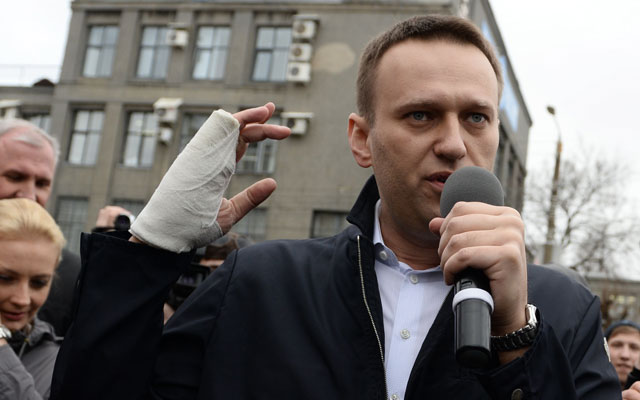Russia: Putin Uses Courts to Crush Opposition
Ariel Cohen / Benjamin Tigay /
KYIV, UKRAINE—Russia’s leading anti-corruption blogger, attorney and political activist Alexei Navalny, appeared in court Wednesday accused of embezzlement. On Thursday, federal prosectuors slapped him with additional charges for alleged price gouging. However, his real crime is exposing corruption and opposing the current political regime.
Prosecutors charged Navalny, a moderate nationalist and a former Yale University fellow, with “embezzling” more than $500,000 of lumber from a state-owned company in Kirov, a regional capital about 500 miles northeast of Moscow. He is accused of giving, in volunteer capacity, “bad advice” to the chairman of the state-owned Kirov lumber company. Russian media and outside observers agree that the charges are politically motivated.
Navalny has long been on the Kremlin’s hit list. He famously called the ruling political party (United Russia) the “party of crooks and thieves.” In December 2011, together with other opposition leaders, Navalny led protests following the Russian parliament elections, which the Russian opposition and foreign political observers found fraudulent. He recently announced his intent to run for the presidency in 2016.
Anywhere in the West, he would be a TV talk show star, but in Vladimir Putin’s Russia, he has become an enemy of the state. Investigators had initially charged Navalny with embezzlement before dropping the case due to a lack of evidence. They were ordered to reopen the file by Alexander Bastrykin, the head of the Russian State Investigatory Committee and Putin’s law school roommate. Additional charges followed Thursday.
Confessing political motivation for the persecution, a spokesman for the Investigative Committee said that because Navalny “provokes the government” and “uses all his energy to bring attention to himself,” authorities decided to “accelerate” the case against him.
His chances to walk are low: The judge in the Lenin District court hearing Navalny’s case has not acquitted a defendant in any of the 130 cases he has heard.
If Navalny is convicted, he faces up to 10 years in prison and will be disqualified from running for office.
The charges against Navalny reflect Russian law enforcement’s concerted effort to eliminate political opposition through the abuse of courts. The Russian authorities would rather prosecute whistleblowers—even posthumously—than go after corrupt officials in their own government. Mikhail Khodorkovsky, the prominent anti-Putin oil executive, is marking his 10th year in jail this year.
The Obama Administration’s half-hearted Magnitsky List demonstrates that the White House is wobbling at a time when civil society and political opposition are under attack in Russia.
The United States should support Navalny, a man who is risking his life for his beliefs and is fighting against corruption and for economic freedom. This would uphold American values and strengthen our relationship with the people of Russia—not just with its rulers.

